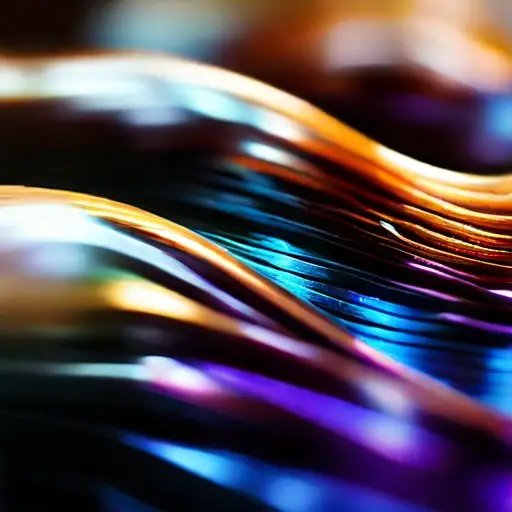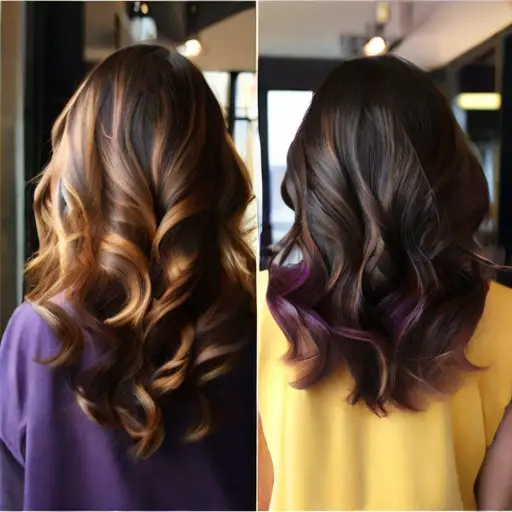Biotin is a water-soluble vitamin that acts as a coenzyme in the metabolism of fats and amino acids. It plays an important role in cell growth and the synthesis of fatty acids. Biotin is found in many foods but is also produced by bacteria in the intestines. Biotin deficiency can lead to hair loss, skin rash, and brittle nails.
Biotin is a water-soluble vitamin that is part of the B-complex family. It’s also known as Vitamin H or coenzyme R. Biotin can be found in foods like eggs, nuts, and leafy greens. It’s also available as a supplement. Biotin is often touted as a miracle cure for hair loss and brittle nails. Some people take biotin supplements to make their hair and nails grow faster and stronger.
There’s no scientific evidence that biotin supplements help with these conditions, but some people swear by it. Biotin is sometimes used in shampoo and other hair products because it’s thought to make hair shiny and lustrous. There’s no scientific evidence to support this claim, but many people believe it works. If you’re looking for shinier hair, try using a biotin-enriched shampoo or conditioner.
Biotin Hair Growth Truth Revealed | Is Biotin Good for Hair Growth?
Biotin Results After 1 Week
If you’re thinking about taking biotin to improve your hair, skin, and nails, you may be wondering how long it will take to see results. The answer depends on a few different factors, but in general, you can expect to see some changes after about a week of taking biotin supplements. One of the most important factors is how deficient you are in biotin, to begin with.
If your body is already getting enough biotin from your diet, it may not make much of a difference if you add a supplement. On the other hand, if you are severely deficient, you may see results much more quickly. Another factor that can affect how quickly you see results is the dosage of biotin you’re taking.
A higher dose will have a more pronounced effect than a lower dose. Most people take between 2.5 and 5 mg per day, but doses as high as 10-15 mg have been used with success in some cases. So what kind of results can you expect after a week of taking biotin? Many people report thicker, healthier hair within the first few days or weeks. Nails also tend to become stronger and less brittle over time.
/biotin-for-hair-v2-primary-a2a6dba03a1144438f10b4f29027b842.jpg)
How Do You Know Biotin is Working?
Biotin is a water-soluble vitamin that’s part of the B complex vitamins. It’s also known as vitamin H. Biotin aids in the metabolism of fats and proteins. It’s important for cell growth and the production of fatty acids.
Biotin is found in many foods, including eggs, nuts, legumes, and leafy green vegetables. It’s also available as a dietary supplement. Most people get enough biotin from their diet and don’t need to take supplements.
However, some people may benefit from taking biotin supplements if they have certain medical conditions or are taking medications that interfere with biotin absorption. If you decide to take a biotin supplement, it’s important to choose a high-quality product. Look for a supplement that has been tested by an independent organization such as ConsumerLab or the U.S. Pharmacopeia (USP). When used properly, biotin supplements can be safe and effective. But like all supplements, they come with risks.

Does Biotin Make Hair Frizzy?
Biotin is a water-soluble vitamin that is part of the B-vitamin family. It plays an important role in cell growth and metabolism and can be found in foods like eggs, salmon, nuts, and leafy green vegetables. While biotin is necessary for healthy hair growth, there is no evidence to suggest that it makes hair frizzy.
Biotin supplements are often recommended for people with dry or brittle hair as they can help to improve moisture levels and prevent breakage.
What Happens If You Put Too Much Biotin in Your Hair?
Biotin is a water-soluble vitamin that’s part of the B-vitamin family. It’s also known as vitamin H. Your body needs biotin to help convert certain nutrients into energy. It also plays an important role in the health of your hair, skin, and nails.
While biotin is considered safe, taking too much can lead to problems. These include digestive issues such as nausea, vomiting, and diarrhea. You may also experience skin rashes or problems with your blood sugar levels or liver function.
If you’re considering taking a biotin supplement, it’s important to speak with your doctor first. This is especially true if you have any underlying health conditions or take medications that could interact with biotin.

What Vitamins Make Shiny Hair?
Many different vitamins can contribute to shiny hair, but some are more important than others. Vitamin A is necessary for the production of sebum, which helps keep hair moisturized and looking healthy. Vitamin C is also important for maintaining healthy hair, as it helps with collagen production and scavenges free radicals that can damage the hair shaft.
B vitamins are also essential for keeping hair looking its best, as they help with cell turnover and produce keratin, the protein that makes up much of the hair shaft. Finally, vitamin E is a powerful antioxidant that can help protect against damage from UV radiation and other environmental stressors.

Frequently Asked Questions (FAQs)
What is biotin?
Biotin is a type of vitamin B, specifically B7, that plays a crucial role in the health of your hair, skin, and nails.
Does biotin make hair shiny?
Yes, biotin can contribute to shinier hair. It helps improve your body’s keratin infrastructure which can lead to healthier and shinier hair.
How does biotin work to make my hair shiny?
Biotin helps in the production of keratin, a protein that makes up your hair. This can strengthen the hair follicle and result in shinier and healthier-looking strands.
How long does it take for biotin to improve my hair’s shine?
The effects of taking biotin supplements may vary from person to person but generally, it takes about 3-6 months for noticeable changes.
Can I get enough biotin from my diet or do I need supplements?
While you can get some amount of biotin from foods like eggs, nuts and whole grains; if you’re looking for significant improvements in your hair’s shine and health, you might want to consider supplements after consulting with a healthcare professional.
Are there any side effects associated with taking too much biotin?
Yes, consuming too much biotin could lead to skin rashes or digestive upset in some people; also high doses may interfere with lab test results so always consult with a healthcare professional before starting any new supplement regimen
Conclusion
Biotin is a water-soluble vitamin that acts as a coenzyme in the metabolism of fats and amino acids. It’s found in many foods but is also available as a supplement. Some people take biotin supplements because they believe it will make their hair shinier and stronger. There isn’t any scientific evidence to support this claim, but some people report seeing results.
